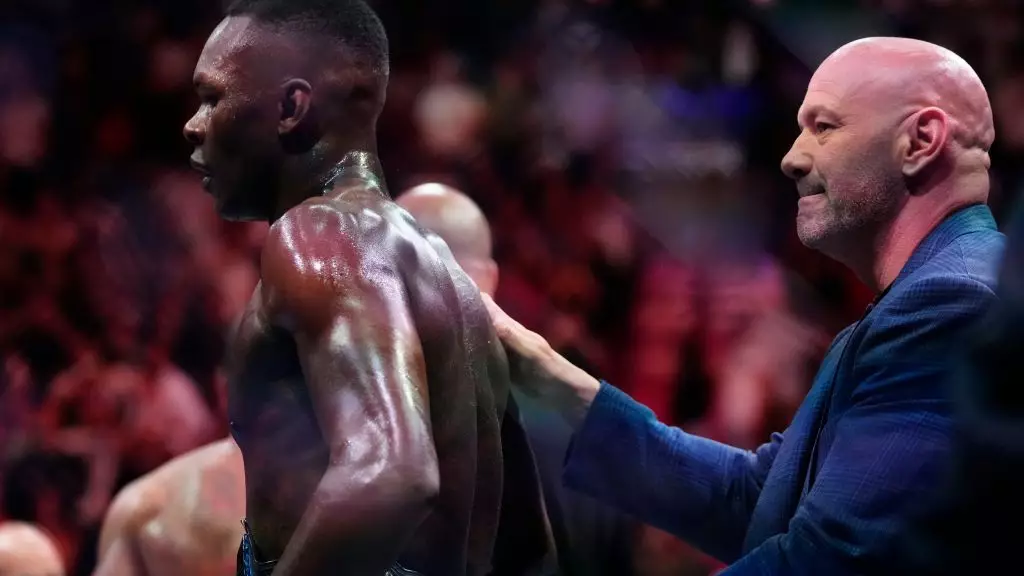Israel Adesanya, once a dominant force in the UFC middleweight division, has recently faced an unsettling series of setbacks. With three consecutive losses under his belt, the future for Adesanya appears uncertain. However, backing from prominent figures in the sport, including UFC CEO Dana White, suggests that the fight community remains hopeful for his comeback. Understanding Adesanya’s current trajectory is critical not just for fans but for aspiring fighters and analysts alike, as it highlights the tumultuous nature of professional competition.
In a recent encounter against rising star Nassourdine Imavov, Adesanya showcased his skills during the initial rounds, demonstrating his extensive experience and strategic acumen. Leading up to the abrupt conclusion of the fight, many observers noted how well Adesanya controlled the pace, delivering effective strikes and maintaining strong takedown defense. White remarked on Adesanya’s performance, indicating that he displayed remarkable technique before getting caught unexpectedly. This moment is illustrative of the fine line in high-level combat sports—one lapse in focus or a mistake can shift the entire outcome of a fight, which is precisely what transpired for Adesanya.
At 35 years of age, Adesanya is contending with the reality that he is no longer in his athletic prime, while his opponents, like the 28-year-old Imavov, are finding their footing. This contrast raises questions about longevity in combat sports and the physical and mental pressures athletes face as they age. While Adesanya’s experience gives him a significant advantage, the evolving nature of competition demands that fighters continuously adapt their strategies and approaches. The inevitability of age and competition volatility merits discussion about how veterans can evolve to revitalize their careers.
In the wake of these recent losses, uncertainty shrouds Adesanya’s future in the Octagon. His post-fight commentary hinted at a contemplative phase regarding his career, signaling potentially critical introspection. The fighter must navigate difficult paths: whether to stay in the sport, take a sabbatical, or perhaps pivot to a new fighting style. These decisions define a career and could either cement a legacy or signal a premature exit from the sport he once dominated.
Despite the string of defeats, the support from UFC leadership and a dedicated fanbase indicates a belief in Adesanya’s potential for redemption. While his current struggle is daunting, the UFC is rife with stories of comeback narratives that encapsulate the spirit of resilience. As Adesanya reflects and plans his next steps, the journey from defeat to resurgence is one filled with challenges, yet paved with opportunity. The essence of a champion lies in their ability to rise after falls—only time will reveal if Adesanya can reclaim his former glory beneath the bright lights of the UFC.

